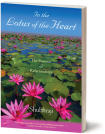The Bhagavad Gita : Chapter FIVE.[compiled by Kamini Khanna. Mombasa, Kenya. Africa]
The fifth chapter prepares the seeker for meditation. We learn the technique of action by relinquishing the sense of doer ship. In other words, we discover the ability of performing action and also the ability of withdrawing from action. We find out how to be tranquil and peaceful even in an unhappy situation. This is the core of Karma Yoga – the technique of acting without acting!
The world is a manifestation of the Divine. God is the sole doer. Everything happens by His will alone. The wise man knows ‘I am not the doer’. The more we are able to imbibe this attitude and act according to it, the nearer we are to dhyana.or meditation. A sure test that mental purification is complete, is when all sense of personal doer ship dissolves and we perceive action to be just happening by Divine Grace. Even Brahma the creator, does not take credit for the creation of the world. With a sense of doer ship, meditation is not possible.
The fifth chapter reveals the link between our initial sadhana or practice that comprises – karma, upasana and jnana (action, worship and meditation). The mind then is sufficiently purified and has relinquished the sense of doer ship. This quiet mind is a prerequisite to meditation. We pass the test when we are aware the action is happening and we are merely instruments.
Bhagavan explains to Arjuna, that he, whose mind remains unattached to external enjoyments, derives, the unadulterated joy through meditation. This joy is our inherent nature. That yogi then, having completely identified himself through meditation with Brahman or the Absolute Self, enjoys eternal bliss. Bhagavan continues with his explanation, saying, that he who is able to withstand here on earth, before casting off this body, the urges of lust and anger, he is a Yogi – a harmonized soul; he is a happy man. He, who is happy within himself, enjoys within himself the delight of the soul, and even so, is illumined by the inner light, – such a Yogi (Sankhyayogi) identified with the Brahman, attains Brahman, who is all peace.
The noble ones, whose sins have been washed away, whose doubts have been dispelled by knowledge, whose minds are firmly established in God, and who are actively engaged in promoting the welfare of all beings, attain Brahman or Immortal Bliss. To those wise men, who are free from lust and anger, who have quieted their mind and have realized God, the abode of eternal peace envelopes them. Shutting out the thoughts of external sense – enjoyments, with the eyes fixed on the space between the eye-brows, having equalized the Prana and Apana breaths, (outward and inward breaths) thus bringing their senses, mind and reason under control – such contemplative souls, intent on liberation and free from desire, fear and anger, areever liberated.
Chapter 5 is the Lord’s hips. We are now ready to sit down in meditation and come to understand our true nature. This chapter prepares us for meditation. We sit down for meditation supported by our hips.
“A deep, wise, and wonderful exploration of the Vedanta path for relationships both with yourself and with others. Shubhraji provides everything you need to create healthy, fulfilling relationships…”
Order Now